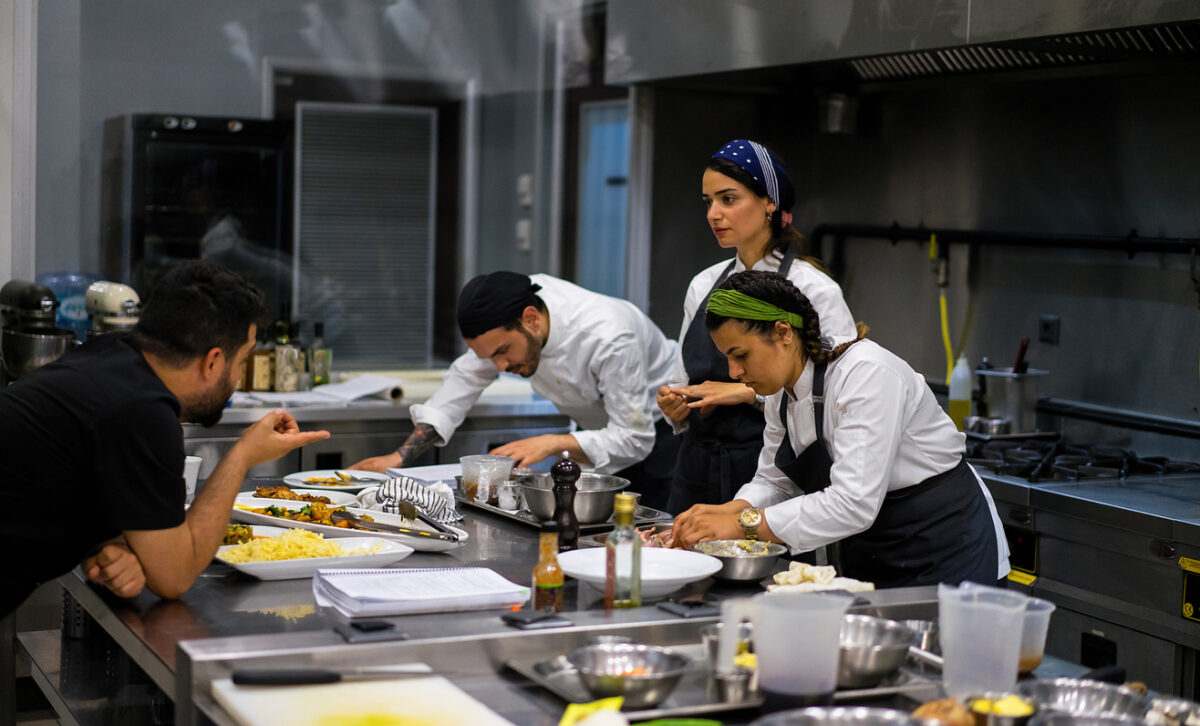What are apprenticeships?

If you’re just about to complete your GCSEs or A Levels but aren’t sure if further education is for you, taking an apprenticeship could be the answer. Apprenticeships give you the opportunity to be employed in a real paid job and study for nationally recognised qualifications at the same time. They’re an excellent way to get a sense of what it’s like to work in the food industry and figure out what you want from your future career.
You’ll be able to work alongside experienced co-workers, earn holiday pay and learn lots of practical skills that will help you succeed in the working world.
To qualify for an apprenticeship, you must be 16 or over, live in the UK and not currently be studying or be about to begin any full-time education such as a course at university. You can apply for an apprenticeship while you’re still in school, but you must be expected to finish by the time the apprenticeship starts.
Are there different types of apprenticeships?
There are various levels of apprenticeships that you can apply to. They are all recognised by employers as suitable equivalents to other qualifications that you might receive at sixth form or university. The range you can apply to are:
- Intermediate Level 2 apprenticeship, which is the same level as a GCSE qualification (usually lasts around 12 months)
- Advanced Level 3, equivalent to an A level (can last between 18 and 24 months depending on the subject)
- Higher level 4, 5, 6 and 7, which is like a Foundation degree or higher (can vary between 24 months and 30 months)
- Degree level 6 and 7 which is on par with a Bachelor’s or Master’s degree (ranges in most cases from 24 to 36 months, with some engineering-based roles going up to 60 months)
Apprenticeships vary slightly depending on where you are in the UK. England and Wales offer degree apprenticeships, but most are provided in England, according to UCAS. If you live in Scotland, degree apprenticeships are called Graduate Apprenticeships, while in Northern Ireland you can study Higher Level Apprenticeships (HLAs) which you can take up to the equivalent level of a Master’s degree.
How much time will I spend working vs studying?
As an apprentice, you will likely spend 80% of your time doing practical work and 20% studying for essential theoretical qualifications. This might be done at your place or work, a local college or university your employer is partnered with, or even remotely. You can expect to work a minimum of 30 hours a week and a maximum of 40, depending on your role and area of the industry you’re working in. It’s also possible to apply for a part-time apprenticeship, though this needs to be agreed by your employer in advance. Part time-apprenticeships usually require at least 16 hours of work a week.
How much will I get paid?
You will get paid the minimum wage for young people enrolled onto apprenticeship schemes. The amount you earn depends on how old you are. For example, if you’re 16-18, or over 19 and in your first year of the apprenticeship, your salary will be at least £4.81 per hour. If you’ve already done your first year and are over 19, you’ll qualify for at least the National Minimum Wage, which varies in amount depending on your exact age. According to the most recent guidance from Gov.uk, if you’re aged 21 and have completed your first year of the apprenticeship you are entitled to a minimum of £9.18 per hour.
Will I be employed once my apprenticeship finished?
It is quite common for apprentices to be offered a permanent full-time position at the company they work for by the time they graduate. While this is reassuring, it isn’t guaranteed. You also might not want to stay on where you’ve undertaken your apprenticeship, which is why it’s always useful to weigh up your other options. For instance, you may want to take on further study, explore the same role at another company or try out something completely different. The food industry has a plethora of positions which are advertised throughout the year meaning there isn’t a specific date you need to apply by.








